This question might be old but here's my answer.
Here's a full code snippet I used in extracting full 256 x 256 icons from any exe file.
using System;
using System.Collections.Generic;
using System.Drawing;
using System.IO;
using System.Linq;
using System.Runtime.InteropServices;
using System.Security;
using System.Text;
namespace IconUtils
{
internal static class ExtractIcon
{
[UnmanagedFunctionPointer(CallingConvention.Winapi, SetLastError = true, CharSet = CharSet.Unicode)]
[SuppressUnmanagedCodeSecurity]
internal delegate bool ENUMRESNAMEPROC(IntPtr hModule, IntPtr lpszType, IntPtr lpszName, IntPtr lParam);
[DllImport("kernel32.dll", SetLastError = true, CharSet = CharSet.Unicode)]
public static extern IntPtr LoadLibraryEx(string lpFileName, IntPtr hFile, uint dwFlags);
[DllImport("kernel32.dll", SetLastError = true, CharSet = CharSet.Unicode)]
public static extern IntPtr FindResource(IntPtr hModule, IntPtr lpName, IntPtr lpType);
[DllImport("kernel32.dll", SetLastError = true)]
public static extern IntPtr LoadResource(IntPtr hModule, IntPtr hResInfo);
[DllImport("kernel32.dll", SetLastError = true)]
public static extern IntPtr LockResource(IntPtr hResData);
[DllImport("kernel32.dll", SetLastError = true)]
public static extern uint SizeofResource(IntPtr hModule, IntPtr hResInfo);
[DllImport("kernel32.dll", SetLastError = true, CharSet = CharSet.Unicode)]
[SuppressUnmanagedCodeSecurity]
public static extern bool EnumResourceNames(IntPtr hModule, IntPtr lpszType, ENUMRESNAMEPROC lpEnumFunc, IntPtr lParam);
private const uint LOAD_LIBRARY_AS_DATAFILE = 0x00000002;
private readonly static IntPtr RT_ICON = (IntPtr)3;
private readonly static IntPtr RT_GROUP_ICON = (IntPtr)14;
public static Icon ExtractIconFromExecutable(string path)
{
IntPtr hModule = LoadLibraryEx(path, IntPtr.Zero, LOAD_LIBRARY_AS_DATAFILE);
var tmpData = new List<byte[]>();
ENUMRESNAMEPROC callback = (h, t, name, l) =>
{
var dir = GetDataFromResource(hModule, RT_GROUP_ICON, name);
// Calculate the size of an entire .icon file.
int count = BitConverter.ToUInt16(dir, 4); // GRPICONDIR.idCount
int len = 6 + 16 * count; // sizeof(ICONDIR) + sizeof(ICONDIRENTRY) * count
for (int i = 0; i < count; ++i)
len += BitConverter.ToInt32(dir, 6 + 14 * i + 8); // GRPICONDIRENTRY.dwBytesInRes
using (var dst = new BinaryWriter(new MemoryStream(len)))
{
// Copy GRPICONDIR to ICONDIR.
dst.Write(dir, 0, 6);
int picOffset = 6 + 16 * count; // sizeof(ICONDIR) + sizeof(ICONDIRENTRY) * count
for (int i = 0; i < count; ++i)
{
// Load the picture.
ushort id = BitConverter.ToUInt16(dir, 6 + 14 * i + 12); // GRPICONDIRENTRY.nID
var pic = GetDataFromResource(hModule, RT_ICON, (IntPtr)id);
// Copy GRPICONDIRENTRY to ICONDIRENTRY.
dst.Seek(6 + 16 * i, 0);
dst.Write(dir, 6 + 14 * i, 8); // First 8bytes are identical.
dst.Write(pic.Length); // ICONDIRENTRY.dwBytesInRes
dst.Write(picOffset); // ICONDIRENTRY.dwImageOffset
// Copy a picture.
dst.Seek(picOffset, 0);
dst.Write(pic, 0, pic.Length);
picOffset += pic.Length;
}
tmpData.Add(((MemoryStream)dst.BaseStream).ToArray());
}
return true;
};
EnumResourceNames(hModule, RT_GROUP_ICON, callback, IntPtr.Zero);
byte[][] iconData = tmpData.ToArray();
using (var ms = new MemoryStream(iconData[0]))
{
return new Icon(ms);
}
}
private static byte[] GetDataFromResource(IntPtr hModule, IntPtr type, IntPtr name)
{
// Load the binary data from the specified resource.
IntPtr hResInfo = FindResource(hModule, name, type);
IntPtr hResData = LoadResource(hModule, hResInfo);
IntPtr pResData = LockResource(hResData);
uint size = SizeofResource(hModule, hResInfo);
byte[] buf = new byte[size];
Marshal.Copy(pResData, buf, 0, buf.Length);
return buf;
}
}
}
Usage:
Icon ExeIcon = IconUtils.ExtractIcon.ExtractIconFromExecutable(@"C:\Windows\explorer.exe");
Source: https://www.codeproject.com/Articles/26824/Extract-icons-from-EXE-or-DLL-files
